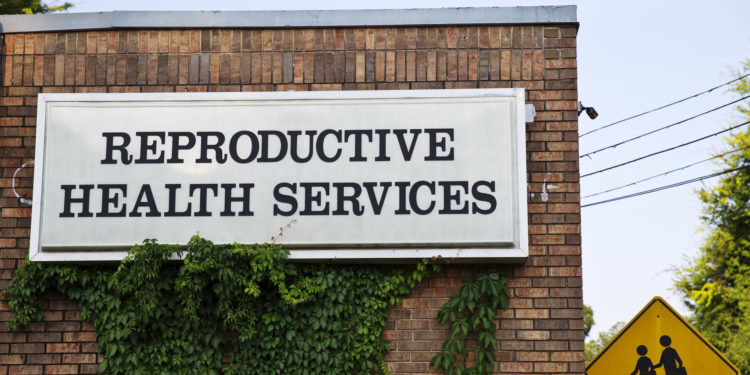Your Position on Abortion

This is not a position piece. My goal here is to help people think more deeply about the moral aspects of abortion. We are all susceptible to regurgitating the mantra-like taglines that surround us, whether that be in politics, sports, or social topics. Most of us want at least to some degree to be considered orthodox in our own communities and not a heretic or an outsider. These desires and tendencies, though don’t absolve us of the responsibility to do the hard work of independent thinking – especially on a topic as important as abortion. We owe that to ourselves and to the people around us.
There are a number of important but peripheral topics that surround abortion – rape, poverty, adoption laws, compassion, charity, etc. – but here I will be focused on the question, “Is abortion moral?” I have my own moral position on abortion, but advocating that is not my purpose here. I hope when you are finished reading this and spending time on the questions, you have a more thought-out moral position.
Before we get started I need to make a quick note about terminology. The terminology used when discussing abortion is often polarized and polarizing depending on one’s moral position and whether or not the-thing-that-will-become-an-adult-human is wanted or not. If pregnancy is wanted, the word “baby” is often used. If the pregnancy is not wanted, words like “growth, “cell cluster,” or “tissue” is used. Developmental stage terminology – zygote, embryo, fetus, etc. – is sometimes helpful but sometimes too specific to a developmental stage to express what is meant. In the questions below I tried to use the terminology “developing human” as much as possible because I think there is little disagreement about what the growth, cell cluster, tissue, zygote, embryo, or fetus will eventually become.
You might come up with your own questions, and I hope you do, but hopefully this will get you off to a good start.
- The spectrum of moral stances generally ranges from “Zero Intervention. Let nature takes its course in all circumstances” to “Intervention at will. The life of the developing human has zero moral value until it is born and independent of the mother’s body.” To just get started, which of these two moral stances do you think you lean more towards?
- Does human life have inherent value? If so, why? Based on what?
- If a human life has inherent value, where does it come from and when does that inherent value begin and why? When does a human life begin to matter and when does human life stop mattering – when does it stop being human life? Is it dependent on a certain stage of development, consciousness, memory, intelligence, physical independence from outside support, a heartbeat, or the ability to feel pain?
- Do human’s have a moral responsibility to protect innocent human life?
- How does your understanding of the value of human life and when it begins to matter apply to the value of a developing human in utero? HERE is a week by week fetal development chart to help you think about your answer related to developing humans.
- A zygote has its own unique DNA from the mother and will rapidly develop its own unique heartbeat and fingerprints. By all accounts the developing human has its own unique body that is temporarily dependent on the mother’s body. Does temporary dependence negate a developing human’s humanity or value? Does this apply to small children or ailing adults?
- If the developing human in utero is female, does ending her life violate her woman’s rights? If not, when can a female human rightfully lay claim to those?
- Are there medical situations that make removing the developing human from the mother – such as birth defects, no signs of life, or health risks to the mother – the moral thing to do? Which ones and why?
- Are there criminal, social, economic, or situational factors that make ending the life of a healthy developing human inside a healthy mother the moral choice – e.g. rape, incest, economic concerns, relationship uncertainty, education or career concerns, etc.? If so, which factors and how do they morally weigh against whatever inherent value the developing human might have? Do these same justifications apply to the ending of a child’s life or an adult’s?
- Related to the previous question, many people say that it is better to have an abortion than to have a baby you’re not prepared to take care of. If that is true, and adoption is not an option, what level of relational or economic deprivation would make you wish someone had ended your life before you were born? Is there a line or lines that can be universally accepted as “life is not worth living” below this point, or are those lines subjective.
- What are the primary reasons women give for having abortions? How could you find out from a reliable source?
- Are abortions risk-free to women? If not, what are the risks? How would you find the data and personal stories from a reliable source?
- There are abortion recovery groups all over our country but there are no appendectomy recovery groups or tonsillectomy recovery groups? What does that tell us about abortion’s potential effects on women?
- Women have many choices when it comes to their reproduction and their bodies – abstinence, birth control, motherhood, adoption, and abortion. Should any of these choices be restricted by society? If so, which ones and on what grounds?
- If a woman has consensual sex and doesn’t properly use birth control and a developing human is created, do her actions and choices create an ethical obligation to the developing human? Does she have some sort of legal liability to that developing human?
- When does it become the responsibility of the father, family, and society to protect a developing human from a mother who wants to end its life? Does that moment come sometime during pregnancy or does it start at some point after the baby is born? If this starts after the baby is born – how long after and why?
- If abortion were considered to be a moral good, what would that mean about human existence and human society?
- Should pregnant women be treated special, be given special consideration, or celebrated? Why or why not? If they should, should this special treatment only begin at a certain stage of fetal development when the developing human is considered to have matured enough to matter? When would that be and how would people know?
- If it is morally permissible at a certain stage for a woman to end the life of a developing human inside her body, is it morally permissible for someone else at that same stage to intentionally end the life of the developing human inside of her? For example, slipping a woman pills that would end that life for economic, relational, or social reasons? If this is a crime, would it be a property crime, assault, or murder? Why?
- If an in utero developing human is the result of the combination of a woman’s genetic material and a man’s genetic material, does the man have any right to his share of the material? Does the woman have any responsibility to the man?
- If a woman wants a baby and gets pregnant, but the man doesn’t want the baby, should the man have to pay for it even though he has no choice in whether the developing human lives or dies? Is it right for a woman to be able to choose the outcomes of her sexual activity but for a man to have a woman make that choice for him?
- Is abortion moral? Why? Why not? Under what circumstances?
I’m sure this list of questions isn’t perfect, but I hope it was helpful in getting you to think more deeply on this important life issue.
You might also be interested in:



No Comment